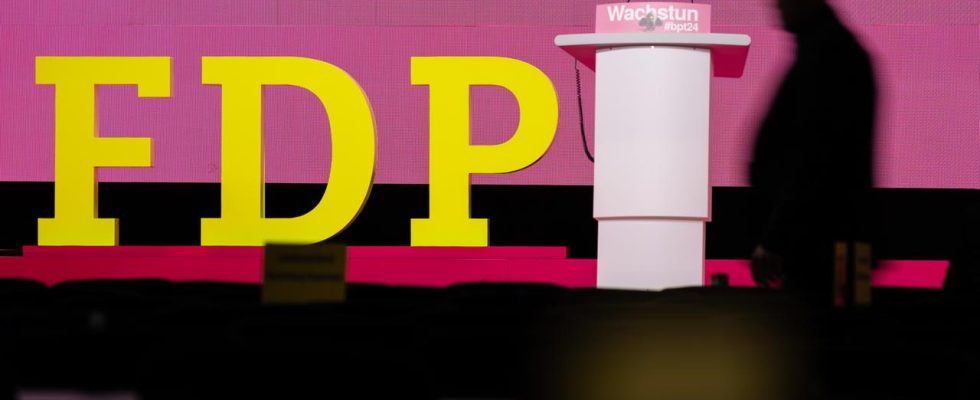No German nuclear power plant has supplied electricity for a year. Three FDP state associations wanted to change that and push through a corresponding motion at the federal party conference in Berlin. But this failed in the vote.
The FDP delegates at the federal party conference in Berlin spoke out against the return to nuclear power by a narrow majority. In doing so, they rejected an application from the regional associations of Saxony, Saxony-Anhalt and Thuringia. In their application, the associations argued, among other things, the preservation of the competitiveness of the German economy and the increase in more CO2-intensive electricity sources.
“The goal must be to generate energy that is always available and cost-effective,” said applicant Thomas Kemmerich. He advocated a return to nuclear energy and cited, among other things, electricity imports from coal and nuclear power from abroad.
The Bavarian FDP politician Florian Kuhl pointed out, among other things, high electricity prices and Germany’s “special approach” in nuclear policy.
Lacking economics new nuclear power plant as an argument
Among others, the North Rhine-Westphalia delegate Reinhard Houben spoke out against the motion in the debate. “Even if we were to approve the proposal today, a nuclear power plant would not be in place for at least 20 years,” emphasized Houben, pointing out that there is no political majority in Germany for a re-entry.
Other delegates cited, among other things, the lack of economic viability of new nuclear power plants as arguments against re-entry.
Leading proposal for “Economic turnaround” approved
The Liberals continued their two-day party conference in Berlin with the debate about the return of nuclear power. Further votes on education policy issues as well as a closing speech by Secretary General Bijan Djir-Sarai were planned.
On Saturday, the majority of delegates approved the party leadership’s key proposal for “economic turnaround”. The twelve-point plan to stimulate the economy includes, among other things, tax cuts, reductions in bureaucracy, a more flexible labor market, a consolidated state budget and cuts to the welfare state. The paper is rejected by the coalition partners SPD and Greens.

